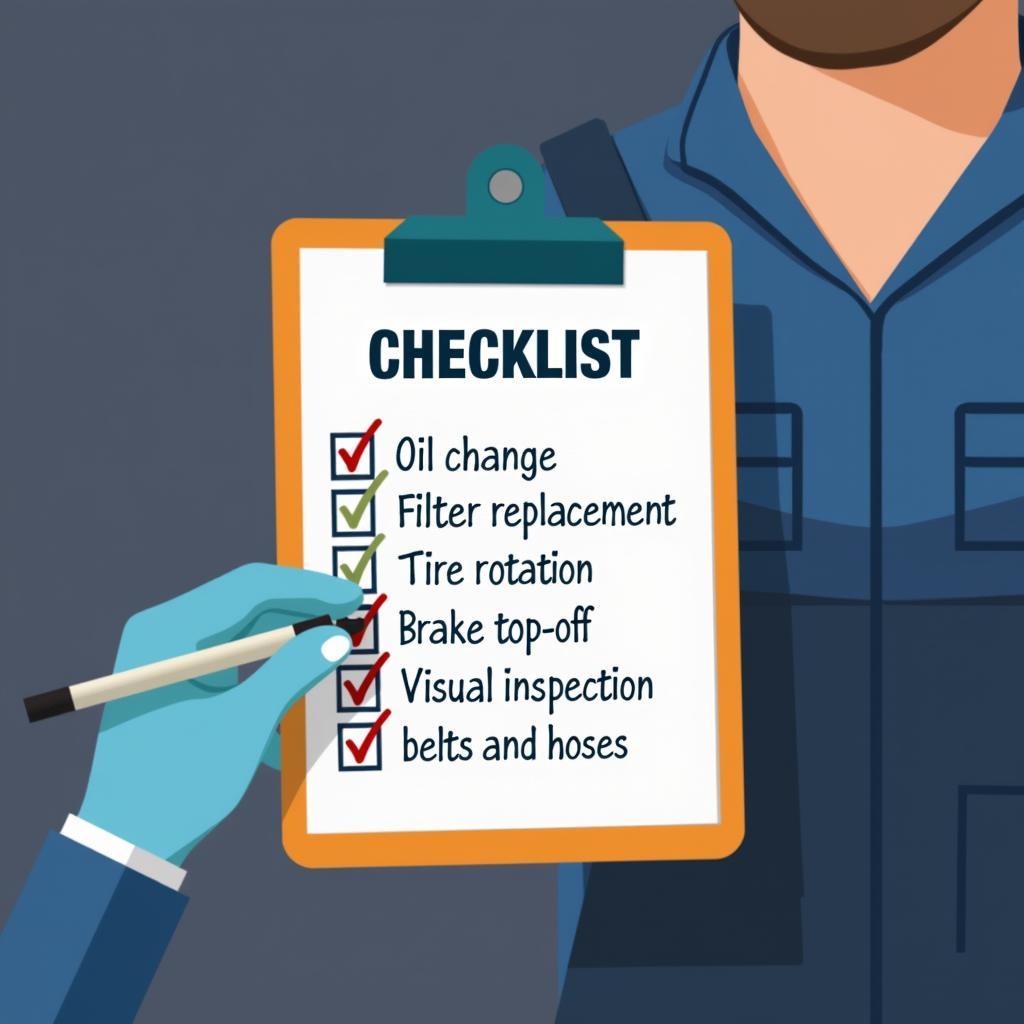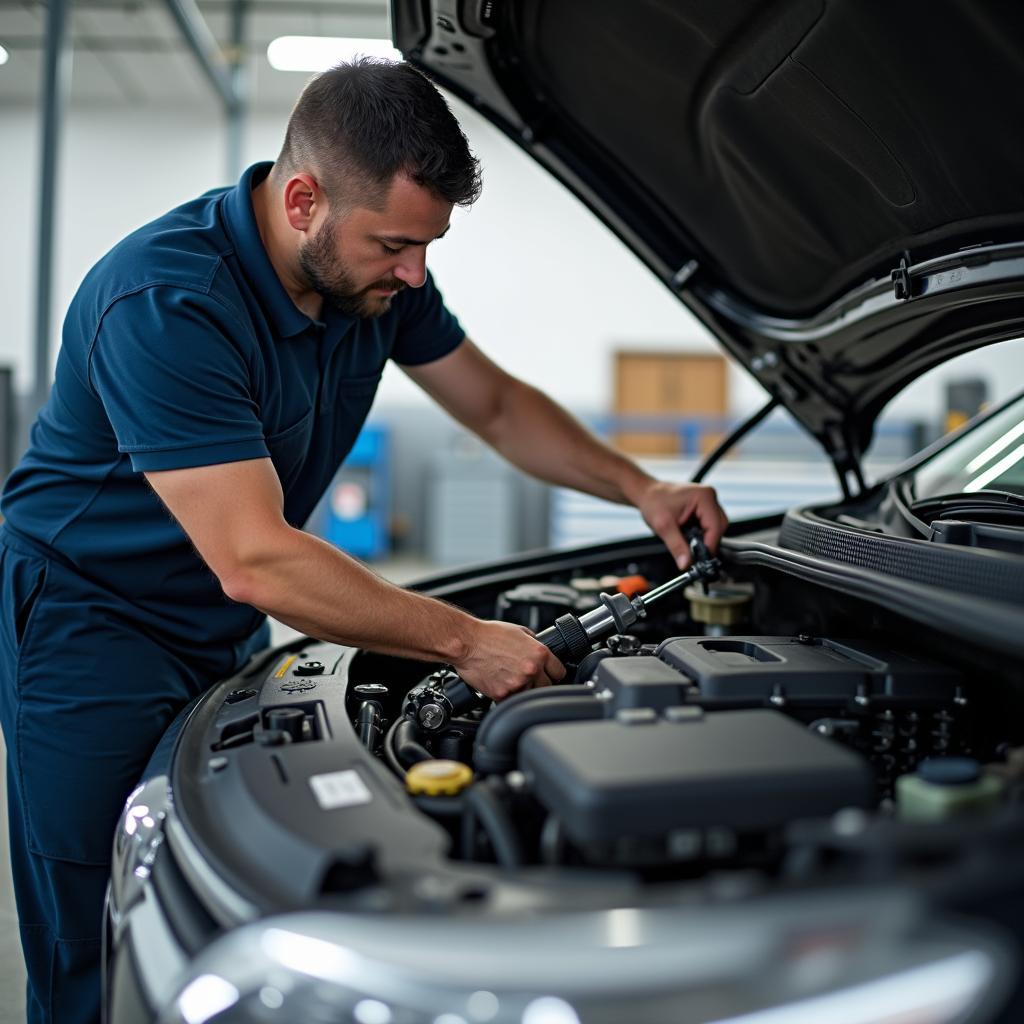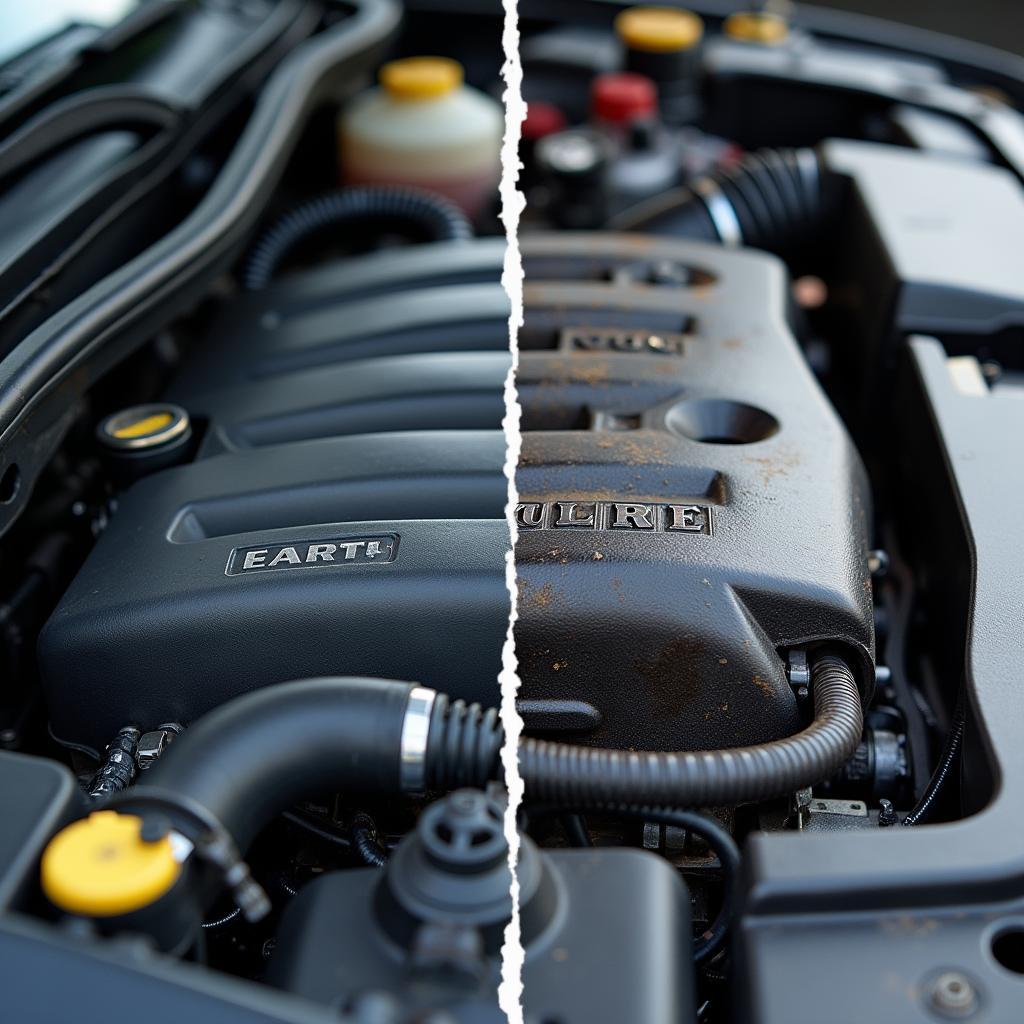A car service is essential for maintaining your vehicle’s performance, safety, and longevity. Understanding what’s involved in a car service can help you make informed decisions about your vehicle’s maintenance and keep it running smoothly for years to come. This comprehensive guide will delve into the details of car servicing, covering everything from routine checks to more complex procedures. You’ll learn about the different types of services, what to expect during a service, and why regular maintenance is crucial.
Keeping your car in tip-top shape involves more than just filling up the gas tank. Regular car servicing is key to ensuring your vehicle runs smoothly, efficiently, and safely. So, what’s involved in a car service exactly? It’s a combination of inspections, adjustments, and replacements that address various aspects of your car’s health. This can range from simple checks like tire pressure and fluid levels to more complex procedures like replacing spark plugs or timing belts. After your first car service, you’ll have a better understanding of routine maintenance. Soon, you’ll be asking yourself questions like, “what is the cost of servicing a car” and searching for affordable options. Understanding the specifics of car servicing can empower you to make informed decisions about your vehicle’s upkeep. Learn what all is carried out in 1st service of car by visiting our dedicated page.
Understanding the Different Types of Car Services
Car services can be categorized into different levels, often referred to as interim, full, or major services. An interim service is typically recommended every 6 months or 6,000 miles and covers essential checks like oil and filter changes, brake inspections, and tire rotations. A full service, usually performed annually or every 12,000 miles, is more comprehensive and includes all the checks of an interim service plus additional inspections and replacements. A major service is the most extensive and is usually recommended every 24,000 miles or two years. This includes everything in a full service, along with more in-depth checks and replacements of major components like the timing belt or water pump.
Do you know what all should be replaced in car servicing? It’s a common question. Different service intervals require different replacements. While an interim service might just involve an oil change, a major service could include replacing the air filter, spark plugs, and other essential components.
 Car Service Check List
Car Service Check List
What Happens During a Car Service?
When you take your car for a service, a qualified mechanic will perform a series of checks and procedures based on the service type. This typically begins with a visual inspection of the vehicle’s exterior and interior, checking for any signs of damage or wear and tear. Next, the mechanic will check the fluid levels, including engine oil, coolant, brake fluid, power steering fluid, and windshield washer fluid. They will also inspect the tires for wear and tear, proper inflation, and alignment. The brakes will be checked for wear and tear, and the brake pads and rotors will be inspected. Depending on the type of service, the mechanic may also perform more complex procedures such as replacing the air filter, spark plugs, or timing belt.
Knowing what does a car service involve can help you anticipate the process and understand the importance of each step. For example, regular oil changes are vital for lubricating the engine and preventing premature wear, while brake inspections ensure your safety on the road.
 Mechanic Performing Car Service
Mechanic Performing Car Service
Why Regular Car Servicing is Important
Regular car servicing is not just about keeping your car running smoothly; it’s about ensuring your safety and maximizing the lifespan of your vehicle. A well-maintained car is less likely to break down unexpectedly, saving you time, money, and potential hassle. Regular servicing also helps identify potential problems early on, preventing them from becoming major and costly repairs. Moreover, a car that has been regularly serviced tends to hold its value better, which is beneficial if you plan to sell it in the future. For more detailed information about what a car service involves, visit our page specifically addressing this topic: what does a car service involve.
“Regular maintenance is an investment, not an expense,” says John Smith, Senior Automotive Technician at ABC Auto Repair. “By addressing minor issues early on, you can avoid costly repairs down the road and keep your car running safely and efficiently for years to come.”
 Well-Maintained Car Engine
Well-Maintained Car Engine
Conclusion
Understanding what’s involved in a car service empowers you to make informed decisions about your vehicle’s maintenance. From routine checks to more complex procedures, regular car servicing is crucial for ensuring your safety, maximizing the lifespan of your vehicle, and preventing costly repairs. By following the recommended service intervals and choosing a qualified mechanic, you can keep your car running smoothly and enjoy a worry-free driving experience. What’s involved in a car service can vary based on your car’s make and model, but regular maintenance is key for all vehicles. If you’re curious about service tax applicability on rentals, you can learn more on is service tax applicable on car rental.
FAQ
- How often should I get my car serviced?
- What is the difference between an interim and a full service?
- How much does a car service typically cost?
- What are the signs that my car needs a service?
- How do I choose a reputable Car Service center?
- Can I service my car myself?
- What is included in a major service?
You might also be interested in these topics: what all should be replaced in car servicing and what is the cost of servicing a car. For any further assistance, feel free to contact us via WhatsApp: +1(641)206-8880 or Email: [email protected]. Our customer service team is available 24/7.
Leave a Reply